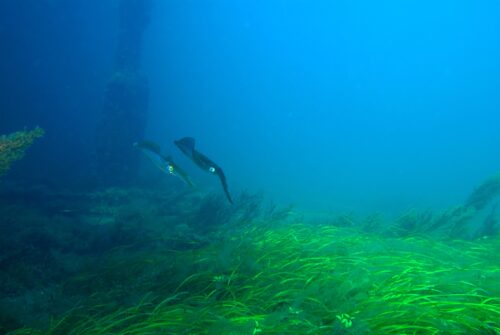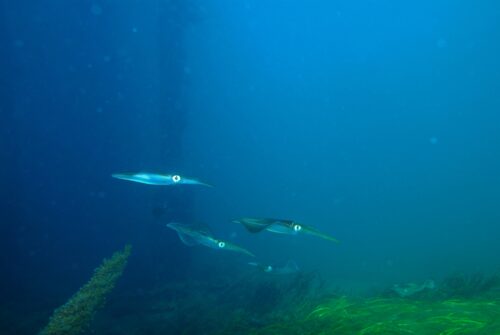Following on from the presentation by some of our members at our September meeting, I thought this whole concept of ‘small group’ members presentations/discussions on current topics of interest was not only novel for MLSSA (in my recollection anyway) but very refreshing.
It stimulated much debate and questions among the audience, all of whom were clearly interested and engaged.
And their questions covered so many different aspects, from narrow, highly specific questions about these animal behaviours to much wider concerns including around sustainability of cephalopod stocks.

I think the biggest question of all is this: Can we humans honestly call SA’s current Southern Calamari fishery sustainable? Based on legislative bag limits and carefully scientific annual population estimates (which I gather show no overall decline in calamari biomass decade to decade), I can see why our expert Fisheries Department colleagues emphatically state that calamari are an exemplary sustainable fishery.
But that’s in the (necessarily, based on the statutory limits of the role of government departments and affiliated agencies like PIRSA/SARDI) restricted context of human harvesting.
Who knows what impact this “sustainable ” annual harvest is having on the myriad other coastal marine animals that have evolved to rely heavily on squid as prey?
Examples include dolphins, many pelagic scalefish, and probably certain pinnipeds.

Poor nutritional status is often quoted as a major factor in the drastically declining population of our Port River dolphins, yet we’re snaffling one of their (historically) locally most abundant prey species.
State Fisheries’ monitoring essentially uses “whole of state waters” annual harvesting statistics when assessing sustainability. I’m willing to bet that current calamari biomass in the Port River system, while probably fairly stable over recent decades, now stands at 10-20% of pre-settlement population biomass, and even that’s probably optimistic.
Sustainability is the reality for recreational and professional fishers, sure. But at what unmeasured costs to the dolphins, indeed to the entire inshore marine ecology of our coastal waters?

